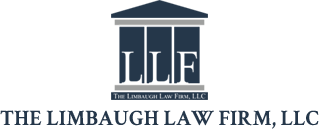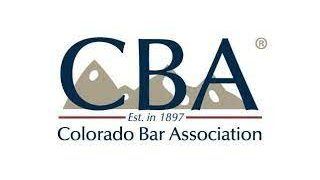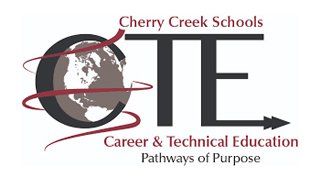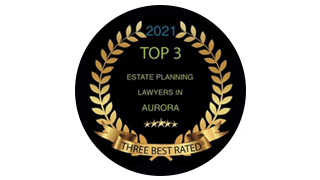Request a Call Back
This is a placeholder for the Yext Knolwedge Tags. This message will not appear on the live site, but only within the editor. The Yext Knowledge Tags are successfully installed and will be added to the website.
Our Family Empowering Yours
Common Estate Planning and Probate Terms
Common Estate Planning and Probate Terms
Practicing Law for Over 20 Years | Virtual Appointments | Free Initial Consultations
This is a placeholder for the Yext Knolwedge Tags. This message will not appear on the live site, but only within the editor. The Yext Knowledge Tags are successfully installed and will be added to the website.
Hours:
This is a placeholder for the Yext Knolwedge Tags. This message will not appear on the live site, but only within the editor. The Yext Knowledge Tags are successfully installed and will be added to the website.
Practicing Law for Over 20 Years
Virtual Appointments
Free Initial Consultations
Posted on June 12, 2017 by Michelle
- Agent: attorney-in-fact under a power of attorney or an individual authorized to make decisions concerning another’s health care.
- Beneficiary:
- Trust Beneficiary: person who has a present or future interest, vested or contingent or the owner of an interest by assignment or other transfer;
- Charitable Trust Beneficiary: any person entitled to enforce the trust;
- Beneficiary Designation Beneficiary: beneficiary of an insurance policy, a POD or TOD designation, or of a profit, pension sharing, retirement or similar benefit plan or other non-probate transfer on death; and
- Governing Instrument Beneficiary: includes grantee of a deed, a devisee, a trust beneficiary, a beneficiary of a beneficiary designation, a donee, appointee, or taker in default of a power of appointment, and a person in whose favor a power of attorney of a power held in any individual, fiduciary, or representative capacity is exercised.
- Beneficiary Designation: governing instrument naming a beneficiary on an insurance or annuity policy; account with a POD or TOD designation; pension, retirement or similar benefit plan; and other non-probate transfers at death.
- Descendants: children, grandchildren, great grandchildren.
- Devise: (noun) testamentary disposition of property.
- Devise: (verb) to dispose of property by will.
- Devisee: person designated to receive property by will.
- Disclaimer: refusal to accept an interest in or power over property.
- Distributee: person who received property of a decedent from the personal representative.
- Estate: property of a decedent, trust, protected person, or ward
- Fiduciary: includes a personal representative, guardian, conservator and trustee.
- Gross Estate: typically used when discussing estate taxes, refers to a decedent’s probate and non-probate property and interest
- Heirs: (1) surviving spouse and surviving children; (2) descendants; (3) parents; (4) siblings; (5) nieces & nephews; (6) grandparents; (7) aunts & uncles; (8) cousins.
- Interested Person: heirs, devisees, children, spouses, creditors, beneficiaries or any others having a right in or claim against an estate. It also includes persons with a priority for appointment as a personal representative or other fiduciary representing an interested person.
- Issue: a person’s descendants
- Letters: document from the court proving he authority of a special administrator, personal representative, guardian or conservator, includes Letters of Administration (decedent did not have a will), Letters Testamentary (decedent left a will), Letters of Guardianship, and Letters of Conservatorship.
- Personal Representative: includes executor, administrator, successor personal representative, special administrator and persons who perform substantially the same function under the law governing their status. However, the term “General Personal Representative” excludes special administrators.
- POD: “Payment on death” non-probate transfer of an account upon death
- Property: means both real and personal property or any interest therein and anything that may be the subject of ownership.
- Successors: persons, other than creditors, who are entitled to property of a decedent under a will or statute
- Testacy proceeding: is a proceeding to establish a will or determine intestacy
- Testator: the person who creates the will (Testatrix is the feminine noun form, but the Colorado Probate Code specifies that “Testator” includes an individual of either sex)
- TOD: “Transfer on death” non-probate transfer of a security
- Trust: arrangement by which a trustee holds legal title to property and a beneficiary holds equitable title to the property.
- Will: includes any codicil and any testamentary instrument that appoints an executor, revokes or revises another will, nominates a guardian, or expressly excludes or limits the right of an individual or class to succeed to property of the decedent passing by intestate succession.
Leave a Reply
Thank you for contacting us.
We will get back to you as soon as possible.
We will get back to you as soon as possible.
Oops, there was an error sending your message.
Please try again later.
Please try again later.
Affiliations
OUR LOCATION
,
This is a placeholder for the Yext Knolwedge Tags. This message will not appear on the live site, but only within the editor. The Yext Knowledge Tags are successfully installed and will be added to the website.
This is a placeholder for the Yext Knolwedge Tags. This message will not appear on the live site, but only within the editor. The Yext Knowledge Tags are successfully installed and will be added to the website.
HOURS
This is a placeholder for the Yext Knolwedge Tags. This message will not appear on the live site, but only within the editor. The Yext Knowledge Tags are successfully installed and will be added to the website.
HOURS
This is a placeholder for the Yext Knolwedge Tags. This message will not appear on the live site, but only within the editor. The Yext Knowledge Tags are successfully installed and will be added to the website.
CONTACT US
This is a placeholder for the Yext Knolwedge Tags. This message will not appear on the live site, but only within the editor. The Yext Knowledge Tags are successfully installed and will be added to the website.
This is a placeholder for the Yext Knolwedge Tags. This message will not appear on the live site, but only within the editor. The Yext Knowledge Tags are successfully installed and will be added to the website.
Hi. Do you need any help?
Privacy Policy
| Do Not Share My Information
| Conditions of Use
| Notice and Take Down Policy
| Website Accessibility Policy
© 2024
The content on this website is owned by us and our licensors. Do not copy any content (including images) without our consent.










Share On: